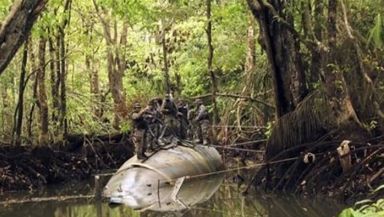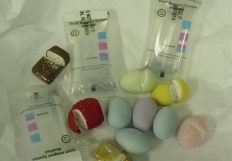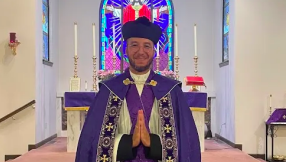
Thought the illegal drug trade that's victimising Christian communities worldwide only happens on land? Think again.
The United States Coast Guard intercepted last month a semi-submersible vessel carrying some 12,000 pounds of cocaine in the eastern Pacific Ocean, off the coast of Mexico.
The retrieved illegal drugs—the largest of its kind in the Coast Guard's history—is estimated to be worth about $181 million (£117 million).
"Every interception of these semi-submersibles disrupts transnational organised crime networks and helps increase security and stability in the Western Hemisphere," Vice Admiral Charles W. Ray, commander of the Coast Guard in the Pacific area, said in a statement.
The 40-foot-long home-made submersible—just a simple, shoddy boat painted blue which sailed low in the water to avoid detection—was initially spotted last July 18 by a US Navy at a spot 200 miles south of Mexico.
Navy personnel then alerted the crew of the Coast Guard cutter Stratton, which immediately proceeded to the site.
The US Coast Guard took into custody four men during the bust and initially discovered 16,000 pounds of cocaine aboard the home-made submersible.
However, about 4,000 pounds of the drug sank 13,000 feet into the water when the Coast Guard was trying to balance and retrieve the vessel.
Underwater vessels, now known by the name "narco-submarines," are becoming more and more popular in the illegal drug trade, because they can carry huge amount of drugs and are very difficult to detect.
"All that you can see is the exhaust pipe and the cockpit from air, so they're very difficult to see," US Coast Guard Chief Warrant Officer Allyson Conroy explained.
Semi-submersible vessels can cost millions of dollars to build, but drug dealers are willing to invest on "narco-submarines" because of the huge profits they can bring if they can successfully transport drugs to the shore.
















